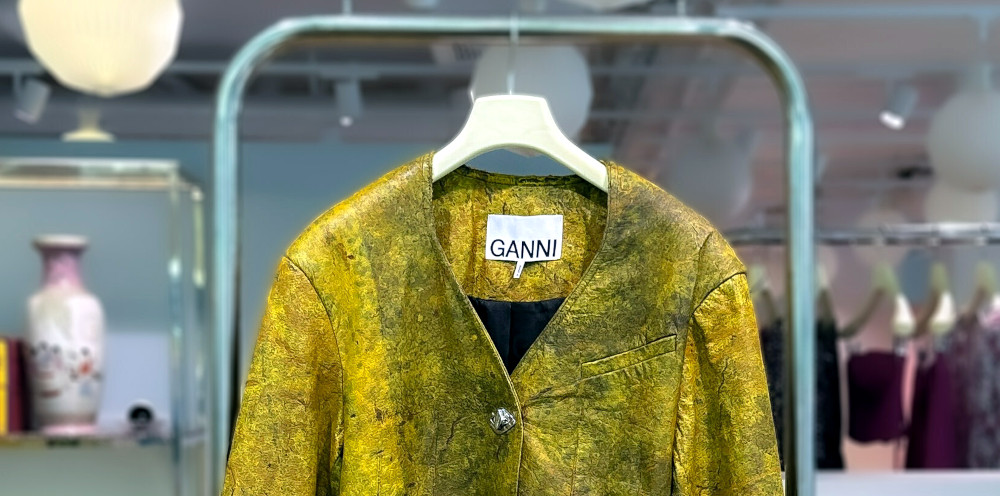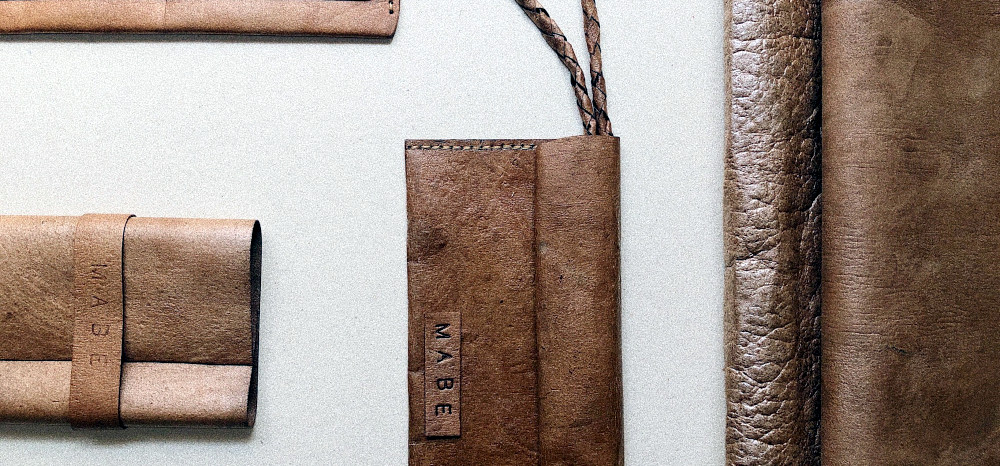Leather, a century-old companion to humankind, is both iconic and practical.
Found in myriad common goods including footwear, apparel, furniture, cars and
more, it is a classic material that never seems to go out of fashion.
Despite its aesthetic appeal and durability, leather is associated with animal
cruelty,
deforestation,
GHG
emissions
and toxic
chemicals.
Annually, we produce about 24 billion square feet of the material, with an
impact of 110kg of CO2 per square.
While synthetic, “vegan” leathers cut out the cows and produce seven times less
CO2 than bovine leather, many
fall short of delivering climate benefits — considering they are
non-biodegradable and derived from fossil fuels. The alternatives we need must
offer the look, feel and durability of bovine leather without any of the
environmental and health impacts.
Startup innovators have been busy on this front — producing a variety of viable
leather alternatives from food-industry
waste;
circular, biobased
polymers;
mycelium
and other more sustainable plant- and animal-based
materials.
And two Latin American biotech startups are further optimizing the supply
chain by making leather from locally sourced, plant-based feedstocks.
Polybion
 Image credit:
Polybion
Image credit:
Polybion
Initially inspired by the potential of mycelium as an alternative material,
Mexican brothers Alexis
Gómez-Ortigoza and Axel Gómez-Ortigoza Aguirre decided to start a business. While Alexis took care of the commercial and
financial side of things, Axel worked away at their mother’s lab until they
could afford to rent their own space.
On the brink of giving up due to resource scarcity and months of struggling to
achieve results, the mycelium experiments finally worked at a pilot scale and
the brothers founded Polybion (from Greek and
Latin, meaning an entity capable of developing multiple technologies) in 2015. A
year later, they launched Fungi Lab — the
first vertically integrated pilot plant for mycelium materials in Latin America.
Starting with scarce resources helped define the company’s ethos: “We believe in
doing more with less, because of the origin of the company,” Axel told
Sustainable Brands® (SB). “We innovate not because we want, but because
we need to.”
After several
awards
and grants,
the Ortigoza brothers pivoted — while working in the lab, they derived a
material from a bacterial fermentation process and realized they could turn it
into a high-performance leather alternative. So, they hired a team of
world-class biologists who helped develop their now-patented, bacterial
cellulose-based leather alternative,
Celium™. Suitable for fashion, footwear,
sportswear and automotive applications, the customizable bio-textile became
their full-time focus in 2018.
With locality and
circularity central to their strategy, Polybion’s production activities occur within a 50-mile
radius of the company’s base — a great example of a hyperlocal value
network
in action. The team takes over-ripened and damaged fruit from local fruit
processing and packaging companies, which would otherwise end up in a landfill,
and converts it into liquid in a 3,000-liter tank. The liquid is then poured
onto vertically stacked trays and stored in an incubator. Bacteria, inoculated
into each tray, eat and transform the fruit waste solution — producing 100
percent pure cellulose as a byproduct, which is then processed into Celium.
As Axel explained to What Design Can
Do,
the resulting material is a
hydrogel
— made from 90 percent water — which can then be “tanned” to transform into a
leather-like textile. The entire process emits 12,27kg of CO2 per square meter
(mostly due to electricity and chemicals), not accounting for the emissions
saved by diverting food from landfills or composts. The company estimates the
process will save 50 percent more CO2 once scaled up.
In 2022, Polybion completed a US$4.4M Series A funding
round
— which has been used to scale Celium production. Although they have already
built FOAK (their first-of-a-kind biomanufacturing facility to industrialize
bacterial cellulose production), Polybion’s team is mapping out what they call
10x — an even larger facility that will be a blueprint the company can license
to other companies and brands that want to transform organic waste or other
cellulosic products into leather.
This year, Polybion collaborated with fashion giant Ganni to feature
Celium-based jackets and
bags at Paris Fashion
Week in January; in October, the partners launched Celium-based Bou
Bags at a Ganni Lab pop-up at
Selfridges in London.
Axel says the Polybion team is excited to see Celium performing well enough for
commercial launch, but they continue to fine-tune the material as they scale. As
he told
Dezeen:
"There is still a road to walk when it comes to performance in order to
outperform animal leathers. This will be achieved by a steady learning and
improvement cycle of both the stabilization process, the growth process and via
gene-tuning of the strains."
He also told SB that, depending on the application, Celium requires a
Polyutherane (PU) coating for water resistance and durability — which accounts
for about 1 percent of the material’s total composition. The team is
investigating plastic-free coating options.
Cellulose is one of the world’s most
abundant
substances, and Axel said Polybion is already experimenting with other
feedstocks with which it can continue “converting waste to high-purity cellulose
that can be used for many different products and other uses” — adding that more
proofs of concept will be released to the public soon.
Mabe Bio
 Image credit: Mabe Bio
Image credit: Mabe Bio
Also fascinated by nature’s abundance and utility, Brazilian textile
expert Marina Belintani
developed a methodology investigating the potential of plants to create
bio-based products. In 2022, she returned to her home country with a mission to
continue her investigation with native plant species.
During this process, she discovered the regenerative environmental, social and
economic benefits of using
pods from the Angico
tree as a circular raw
material for plant-based leather production.
“As a native species, Angico is found in almost all Brazilian biomes and is
widely used in reforestation projects,” Belintani told SB. “By valuing a forest
waste product, we are helping to generate value from native forests and increase
the income of local communities.”
So, research became business: In 2022, Belintani met Rachel
Maranhão during the Business
Acceleration Program for founders of Antler — a
venture capital firm that invests in early-stage startups — and the two
co-founded MABE Bio, with a goal to provide not only sustainable materials but
also a regenerative production
model good for both people and planet. Later that year, the company won
first place and €10.000 in ClimateLaunchpad’s Global Grand
Final.
Brazilian venture capitalists are risk-averse, so launching a deep-tech business
— not to mention a woman-founded deep-tech startup — in Brazil is “extremely
challenging,” Belintani shared. According to
UN research,
women-founded startups receive less than 12 percent of the total investment
volume from the country’s major venture capital firms.
The company now enjoys the support of major national institutions including
Embrapii,
Sebrae,
FAPESP and Finep; and is
collaborating with supply-chain expert
Farfarm for responsible sourcing of
Angico tree pods from Indigenous communities and
MST (Landless Workers’ Movement)
settlements. In 2023, Belintani was named one of Bloomberg’s New Economy
Catalysts and Maranhão
made MIT’s list of Innovators Under
35.
While the material’s LCA is still in development, MABE Bio estimates its
plant-based leather has the potential to increase the income of 600 families by
15 percent and preserve over 100 hectares of forest during its initial years of
production. According to the company’s current calculations, Angico bio-leather
could sequester more than 4,250 tons of CO2 and use 90 percent less water than
conventional leather production.
And unlike many plant-based leathers, Angico leather does not require a PU
coating — it is durable and water resistant in its natural state.
“We are committed to continuously investing in the evolution of our product to
ensure it meets the performance standards required by the industry,” Belintani
stated.
Earlier this year, the company
received an additional
R$1 million in funding: “This
investment is a critical step towards establishing ourselves as pioneers in the
construction and development of this new industry in Brazil,” Belintani said.
Meanwhile, Mabe Bio continues to fine-tune Angico leather and prepare for
launch: Last month, the company participated in the Academy-Industry Training
(AIT)
program
— which helps researcher-entrepreneurs transition their projects from the lab to
the market.
Future-proofing fashion
Fashion remains one of the world’s top
polluters;
but more brands and innovators are turning away from the industry’s
destructive, conventional
practices
toward next-generation materials,
processes
and production
models — a
welcome and necessary trend creating new value and a more resilient industry.
Get the latest insights, trends, and innovations to help position yourself at the forefront of sustainable business leadership—delivered straight to your inbox.
Nina is a content writer covering the A-Zs of sustainability and innovation.
Published Dec 23, 2024 8am EST / 5am PST / 1pm GMT / 2pm CET